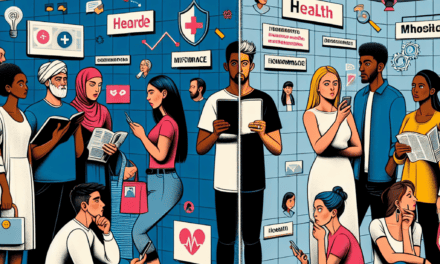-
Table of Contents
- Mental Resilience Training in the Healthcare Profession
- The Importance of Mental Resilience in Healthcare
- Understanding the Demands of Healthcare
- The Impact of Stress on Healthcare Professionals
- The Role of Mental Resilience in Patient Care
- Case Studies: Successful Implementation of Resilience Training
- Statistics Supporting the Need for Resilience Training
- Methods of Mental Resilience Training
- Mindfulness and Meditation
- Cognitive Behavioral Therapy (CBT)
- Peer Support and Mentorship
Mental Resilience Training in the Healthcare Profession

The healthcare profession is one of the most demanding fields, requiring not only technical expertise but also emotional strength and mental resilience. Healthcare professionals often face high-stress environments, long working hours, and emotionally taxing situations. Mental resilience training has emerged as a crucial component in helping these professionals maintain their well-being and continue to provide high-quality care. This article explores the importance of mental resilience training in the healthcare profession, examining its benefits, methods, and real-world applications.
The Importance of Mental Resilience in Healthcare
Mental resilience is the ability to adapt to stress, adversity, and challenging situations. In the healthcare profession, where practitioners are regularly exposed to life-and-death situations, mental resilience is not just beneficial but essential. The following sections delve into why mental resilience is crucial for healthcare professionals.
Understanding the Demands of Healthcare
Healthcare professionals, including doctors, nurses, and support staff, work in environments that are inherently stressful. They are responsible for the lives and well-being of their patients, often working long hours with little rest. The pressure to make quick, accurate decisions can be overwhelming, leading to burnout and mental fatigue.
According to a study published in the Journal of the American Medical Association, nearly 50% of physicians experience symptoms of burnout. This statistic highlights the urgent need for mental resilience training to help healthcare workers cope with the demands of their profession.
- High-stakes decision-making
- Emotional toll of patient care
- Long working hours and shift work
- Exposure to traumatic events
The Impact of Stress on Healthcare Professionals
Chronic stress can have severe consequences for healthcare professionals, affecting their mental and physical health. Stress can lead to anxiety, depression, and other mental health issues, which in turn can impact job performance and patient care.
Research from the National Institute for Occupational Safety and Health (NIOSH) indicates that healthcare workers are at a higher risk of experiencing stress-related disorders compared to other professions. This underscores the need for effective mental resilience training programs to mitigate these risks.
- Increased risk of mental health disorders
- Decreased job satisfaction and performance
- Higher rates of absenteeism and turnover
The Role of Mental Resilience in Patient Care
Mental resilience not only benefits healthcare professionals but also enhances patient care. Resilient practitioners are better equipped to handle the emotional demands of patient interactions, leading to improved communication and empathy.
Studies have shown that healthcare providers with higher levels of resilience are more likely to engage in patient-centered care, resulting in better patient outcomes and satisfaction. This highlights the importance of incorporating mental resilience training into healthcare education and professional development.
- Improved patient-provider communication
- Enhanced empathy and understanding
- Better patient outcomes and satisfaction
Case Studies: Successful Implementation of Resilience Training
Several healthcare institutions have successfully implemented mental resilience training programs, demonstrating their effectiveness in improving staff well-being and patient care. For example, the Mayo Clinic’s “Stress Management and Resilience Training” (SMART) program has been widely recognized for its positive impact on healthcare professionals.
The SMART program focuses on teaching mindfulness, cognitive restructuring, and relaxation techniques to help participants manage stress and build resilience. Participants have reported significant improvements in their mental health and job satisfaction, showcasing the potential benefits of such programs.
- Mayo Clinic’s SMART program
- University of California, San Francisco’s “Resilience and Well-being” initiative
- Johns Hopkins Medicine’s “Resilience in the Workplace” program
Statistics Supporting the Need for Resilience Training
Numerous studies and surveys have highlighted the need for mental resilience training in the healthcare profession. According to a survey conducted by the American Medical Association, 78% of physicians believe that mental resilience training would benefit their practice.
Furthermore, a report by the World Health Organization (WHO) emphasizes the importance of mental health support for healthcare workers, particularly in the wake of the COVID-19 pandemic. These statistics underscore the growing recognition of mental resilience as a critical component of healthcare practice.
- 78% of physicians support resilience training
- WHO report on mental health support for healthcare workers
- Increased focus on mental health post-COVID-19
Methods of Mental Resilience Training
Mental resilience training encompasses a variety of methods and techniques designed to help individuals cope with stress and adversity. In the healthcare profession, these methods are tailored to address the unique challenges faced by practitioners. The following sections explore some of the most effective methods of mental resilience training.
Mindfulness and Meditation
Mindfulness and meditation are powerful tools for building mental resilience. These practices involve focusing on the present moment and cultivating a non-judgmental awareness of one’s thoughts and feelings. For healthcare professionals, mindfulness can help reduce stress, improve focus, and enhance emotional regulation.
Research has shown that mindfulness-based interventions can significantly reduce symptoms of burnout and improve overall well-being among healthcare workers. Programs such as Mindfulness-Based Stress Reduction (MBSR) have been successfully implemented in various healthcare settings, demonstrating their effectiveness in promoting mental resilience.
- Mindfulness-Based Stress Reduction (MBSR)
- Guided meditation sessions
- Breathing exercises and body scans
Cognitive Behavioral Therapy (CBT)
Cognitive Behavioral Therapy (CBT) is a widely used psychological intervention that focuses on identifying and changing negative thought patterns and behaviors. In the context of mental resilience training, CBT can help healthcare professionals develop healthier coping strategies and improve their emotional resilience.
CBT-based programs have been shown to reduce symptoms of anxiety and depression among healthcare workers, leading to improved job performance and satisfaction. By addressing the cognitive aspects of stress and adversity, CBT can empower practitioners to better manage the challenges of their profession.
- Identifying negative thought patterns
- Developing healthier coping strategies
- Improving emotional regulation
Peer Support and Mentorship
Peer support and mentorship are essential components of mental resilience training in the healthcare profession. By fostering a supportive community, healthcare workers can share their experiences, learn from one another, and build a network of support.
Mentorship programs, in particular, have been shown to enhance resilience by providing guidance, encouragement, and role modeling. These programs





